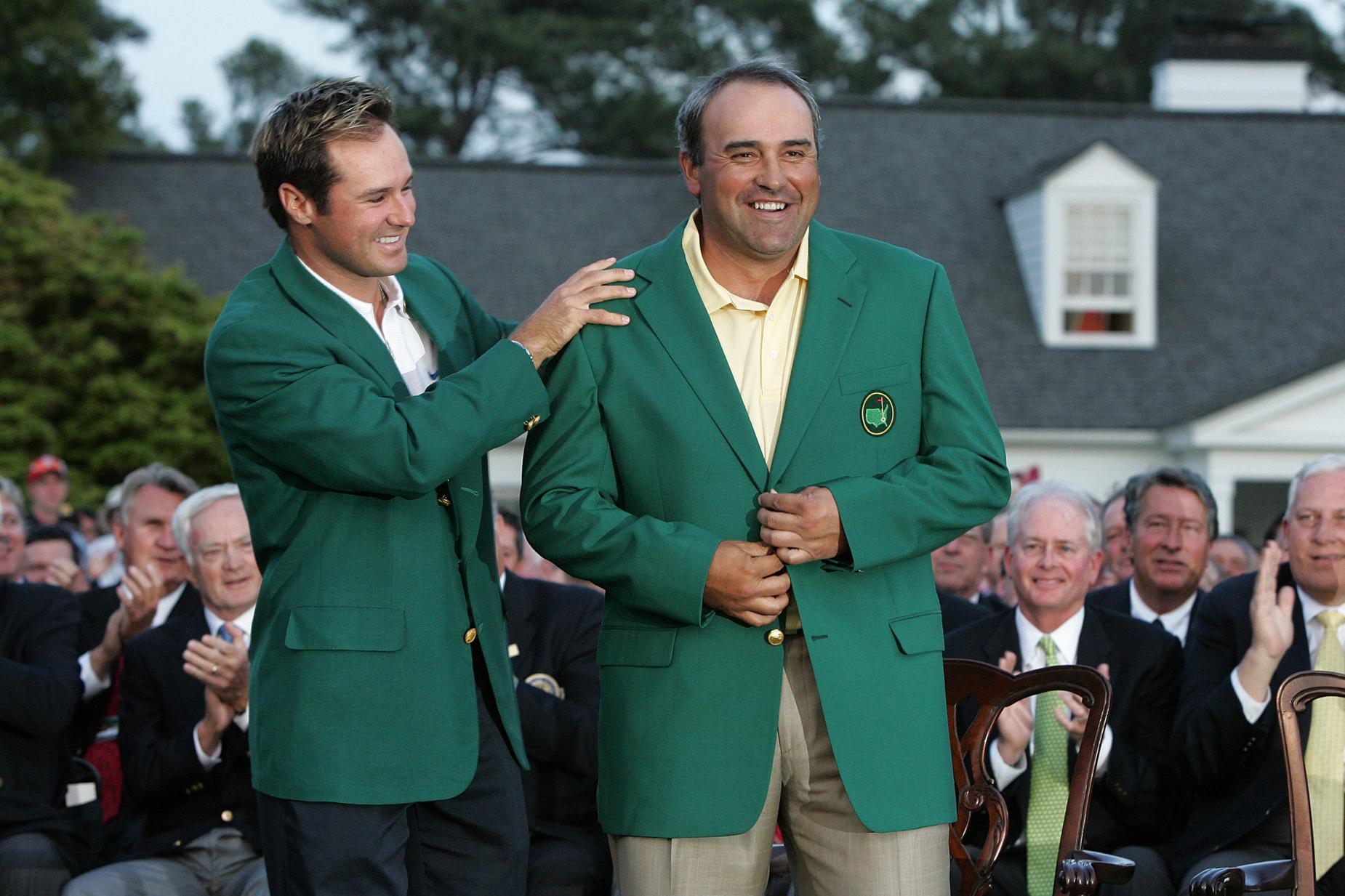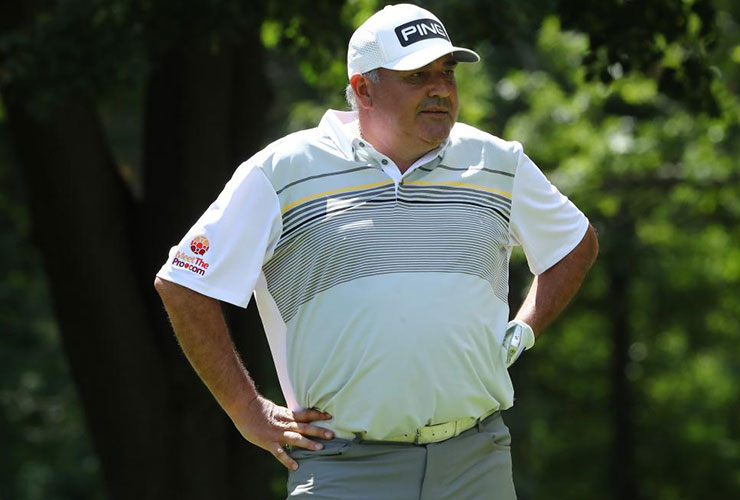Angel Cabrera. Rey Del Rio
Former US Open and Masters champion Angel Cabrera will be released from prison later on Friday.
The 53-year-old gave no interviews, had no press conference, and released no statement. “I just want to go home, be with my family, and start a new phase of my life,” he told Golf Digest, through his long-time manager, Manuel Tagle.
His partner, Yamila Alvarez, will retrieve him from Monte Cristo, the minimum-security prison 10 miles east of Córdoba where the prominent Argentine golfer had spent the past seven months.
All told, Cabrera has spent more than 30 months in three prisons, serving concurrent sentences for domestic violence and other lesser charges.
His legal woes date back to 2016. Over a period of about four years, court filings by his ex-wife Silva Rivadero, who alleged physical assault and verbal threats, and by two ex-girlfriends, Micaela Escudero, who alleged domestic violence, and Cecilia Torres Mana, who accused Cabrera of being verbally and physically abusive, darkened his future.

Argentine golfer Angel Cabrera before a hearing as part of his trial. Diego Lima
Then, in August 2020, shortly before a mandated court appearance, Cabrera flew to the Senior Players Championship in Akron, Ohio, without giving local authorities prior notice. This triggered a Red Notice issued by Interpol, which alerts police worldwide about internationally wanted fugitives.
Everything came to a head on January 14, 2021, when Cabrera’s return to South America triggered the Interpol alert and he was swarmed by Brazilian federal officers in a quiet upscale neighbourhood in Rio de Janeiro, where he was staying with Alvarez.
Cabrera then spent four-and-a-half months in the notorious Plácido de Sá Carvalho prison on the outskirts of Rio. When he was finally extradited to Argentina in June, 2021, after COVID-related delays, he was remanded to Cordoba’s Bouwer prison, to stand trial on charges of domestic violence, intimidation and theft.
The trial was covered widely across South America, on television and in print, featuring video and photos of Cabrera in court, donning a jacket with the Presidents Cup logo and various COVID face masks, including one with an image of Eva Peron.
During the court proceedings, the prosecution homed in on two altercations between Cabrera and Torres Mana, who had a tumultuous two-year relationship with the golfer between 2016 and 2018. In the first, Torres Mana, a Cordoba police officer, claimed that Cabrera struck her twice after hurling insults at her while standing outside her driver-side window. In the second, she described him whipping an iPhone at her during a heated argument, injuring her scalp. Cabrera denied he hit her with the phone in court documents.
Cabrera maintained his innocence throughout the trial and disputed Torres Mana’s narrative point by point, though he did admit that he had battled alcohol addiction, and even sought treatment in 2018, according to an account detailed in the case’s 168-page sentencing document.
When asked during the trial about Cabrera’s sentencing, Cordoba prosecutor Laura Battistelli, stated that “his situation is much more complex than this, he has other charges for which there are arrest warrants, too”, adding that “there are other victims”.

Angel Cabrera during the pinnacle of his Masters career, receiving his green jacket after victory in 2009. The State
Cabrera was found guilty of two counts of assault against Torres Mana and began serving a two-year sentence immediately after the verdict. He spent the next 18 months interred in Carcel de Bouwer outside Cordoba, which has housed some of Argentina’s most violent criminals. It’s nickname ‘El Penal del Infierno’ or ‘The Prison from Hell’ alludes to a reputation for gang-activity and overcrowding,
Last November, Cabrera appeared in court a second time to face assault charges, this time from Micaela Escudero. During this second trial, he was contemplative rather than combative, admitting to local press that confinement had benefitted him. “Many say prison is bad, but it’s not the case, prison has done me good,” he said. He was convicted of assaulting Escudero and sentenced to another two years and four months, to be served concurrently.
At the end of 2022, having complied with all prison requirements at Bouwer, including exhibiting stellar conduct and engaging in regular therapy sessions with a prison psychologist, he was transferred to Monte Cristo. “The difference was like night and day,” manager Tagle says. “Bouwer is a typical South American prison, all concrete and bars. Inmates there are crammed into a large hall filled with tables and chairs for ten hours a day with limited access to the outdoors. Monte Cristo is a 90-hectare farm with no cells or bars. You have your own room, work in the fields and can cook your own meals if you want.” At Monte Cristo, Cabrera was permitted his own mobile phone, and starting two months ago, earned day passes to go home between 6am and 10pm several times a month.
By all accounts, Cabrera was a well-behaved and responsive prisoner. While at Bouwer, he supplemented his prison-based counselling sessions, hiring an outside therapist who he plans to continue to work with.
Through Tagle, Cabrera also relayed that he wants to focus on a calibrated physical fitness regimen. “I lost a lot of muscle mass in prison. I need to get that back. I just don’t feel that great physically.” He doesn’t know how his wrist, which was operated on in 2020, will respond to intensive training.
The case with Rivadero is still pending. As a condition of his early release, Cabrera must have no contact with either ex-girlfriend, as well as ask for permission to leave Argentina.









